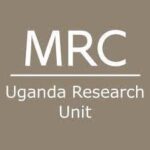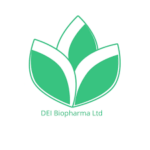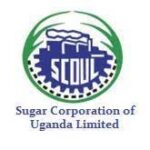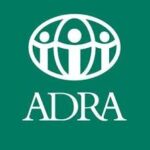
MRC/ UVRI and LSHTM Uganda Research Unit
The Unit is an internationally recognised centre of excellence with dominant research themes
in the areas of HIV and emerging infections, vaccines and immunity, and chronic diseases and
cancer. Through a multidisciplinary approach, intersecting basic science, epidemiological
research, social-behavioural research and the conduct of new intervention evaluation studies,
the Unit contributes knowledge on changing epidemics and diseases, the evaluation of
innovative health care options, treatment and prevention and the development of health
policy and practice in Africa and worldwide. Following the signing of strategic transfer
agreements between the London School of Hygiene & Tropical Medicine (LSHTM) and the
Medical Research Council (MRC UK), the Unit formally joined LSHTM on 1st February 2018.
The exciting new partnership will boost research capacity into current and emerging health
issues in Africa and throughout the world. The Unit is based at the UVRI Entebbe campus with
established outposts in Kalungu, Masaka, Wakiso and Kampala Districts. The Unit is now
seeking enthusiastic and experienced individuals to fill the following position:
Community Liaison Officer – (01 Position)
Position Code: CLO -525
Reports to: Head of Communications and Engagement
Department: Communications and Engagement
Station: Kyamulibwa
Job Purpose
The position holder will support the implementation of the Unit’s community engagement
strategy and coordinates related activities at the field station. This role ensures that research
activities are conducted in a way that is respectful of and responsive to community priorities,
facilitating collaborative partnerships between researchers and local communities. The CLO
will support the active participation of local stakeholders, integrate local knowledge into
research processes, and promote ethical engagement practices in research.
Roles & Responsibilities
1. Community Engagement Strategy Implementation:
• Support the implementation of the Unit’s community engagement strategy at the field
station, adapting it to local needs while ensuring alignment with overall organizational
goals; and,
• Facilitate and support community members in leading and shaping engagement
activities, ensuring their voices are central in the design and execution
2. Partnership Building:
• Establish strong, trust-based relationships with community leaders, local organizations,
and participants to foster a collaborative and inclusive environment; and,
• Promote community ownership of research activities, encouraging local stakeholders to
take leadership roles in relevant engagement initiatives.
3. Collaborative Research Support:
• Work closely with research teams to ensure that community perspectives are integrated
into all stages of the research process, from design to dissemination;
• Collaborate with the field station team to organize community engagement activities,
ensuring that activities are locally relevant and responsive to community needs; and,
• Advise the research team on best practices for co-designing research activities with the
community, ensuring that research is culturally appropriate, ethical, and beneficial to the
local context.
4. Health Communication and Education:
• Support the development and dissemination of health communication materials that
reflect local knowledge, concerns, and priorities;
• Represent the Field Station at community health education activities, such as family
health days and public health talks; and,
• Ensure that all health-related messages and materials are developed in collaboration
with local stakeholders to ensure cultural relevance and accessibility.
5. Ethical Engagement:
• Ensure that community members are fully informed and actively involved in the research
process through participatory and transparent informed consent practices; and,
• Support the ethical conduct of all community engagement activities, ensuring that
engagement practices respect local customs, traditions, and preferences.
6. Reporting:
• Establish and maintain mechanisms for ongoing feedback;
• Write and share reports on field activities, community feedback, and engagement
outcomes, with research teams (and line manager) for incorporation into the research
process; and,
• Facilitate regular dialogues between research teams and the community, ensuring
transparent communication and fostering a sense of ownership and trust among
participants.
7. Research Dissemination:
• Assist in the design and implementation of research dissemination plans at the end of
projects that are accessible, understandable, and actionable to communities.
8. Logistical Support:
• Coordinate logistical support for community engagement activities, including travel,
transport, and the distribution of supplies to field teams and community stakeholders;
and,
• Ensure that community engagement events and activities are conducted in a timely and
efficient manner, with local involvement and leadership.
9. Financial Responsibilities:
• Prepare budgets for approved community and participant activities;
• Ensure activities are delivered within approved budgets; and,
• May be delegated responsibility for managing participant reimbursements/payments.
10. People Management Responsibilities:
• Foster a collaborative, respectful environment with field workers, study teams, and
community members; and,
• Provide mentorship and technical support to field staff as needed.
11. Corporate/Local Responsibilities & Requirements:
• Comply with the Unit’s Code of Conduct, Equality & Diversity Policy, Health & Safety
Policy, and Data Protection guidelines at all times;
• Job descriptions will be reviewed periodically and during annual appraisals. Amendments
can be made by agreement between the post holder and their line manager; and,
• The duties outlined are not exhaustive, and the post holder may be required to undertake
additional responsibilities within the scope of the role.
Person Specification
• Bachelor’s degree in Community Psychology, Social Sciences, or related fields;
• Training in community engagement, health communication, or research ethics;
• Should possess at least three years of relevant work experience in a research setting, with
a strong focus on community engagement roles;
• Previous experience working in public healthcare, education, or international research
settings;
• Familiarity with conducting research in population-based or longitudinal study settings;
• Experience writing reports;
• Should have demonstratable technical competence in community engagement and
coordination of field activities;
• Working knowledge of research study protocols and standard research procedures;
• Proven ability to obtain informed consent and engage respectfully with diverse community
populations;
• Basic computer literacy, including use of Microsoft Office applications.
• Proficiency in English and Luganda (or other relevant local languages);
• Should possess strong personal integrity skills;
• Emotional intelligence;
• Ability to learn;
• Cultural sensitivity and openness;
• Dependability;
• Problem solving;
• Proactivity;
• Results orientation;
• Attention to detail;
• Commitment to excellence;
• Innovativeness;
• Flexibility;
• Service orientation; and,
• Independence.
Combine all your application documentation i.e. cover letter, CV & certified copies
of academic documents into one PDF document. Deadline for application is 20th May
2025, 5:00pm. Only shortlisted candidates will be contacted for interview. This position is
open to Ugandan nationals only. Strictly follow the application procedure as failure to do so
will lead to automatic disqualification. Only online applications through the link provided will
be accepted. You will receive a notification in your email if your application and
documentation have been successfully received



